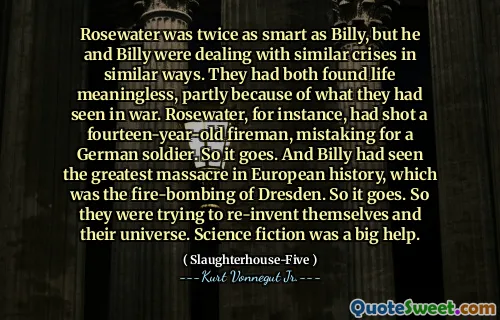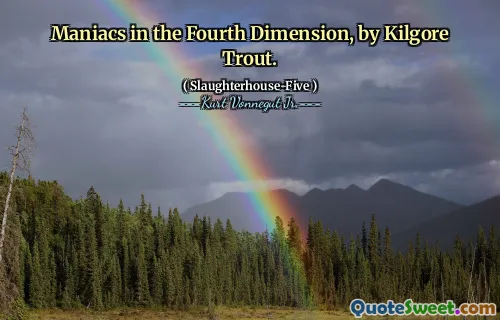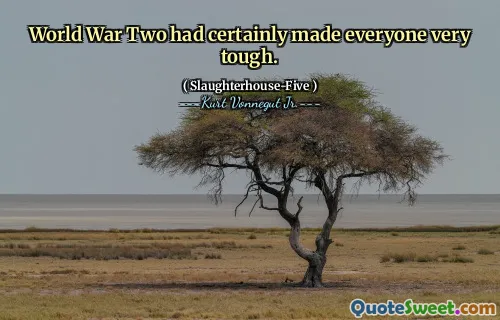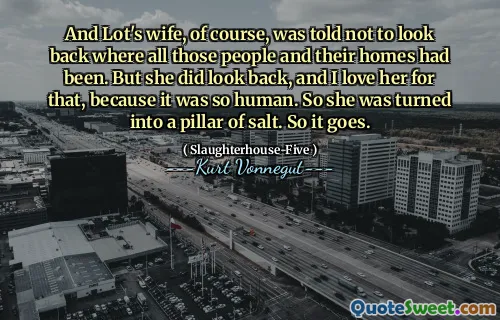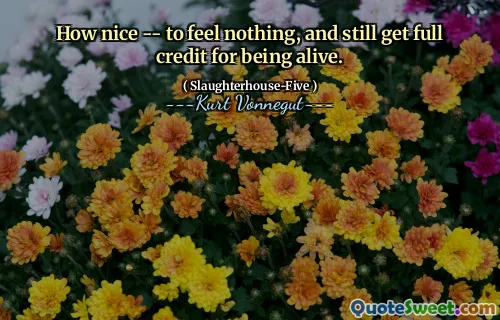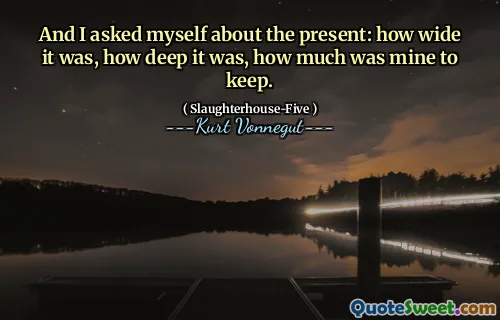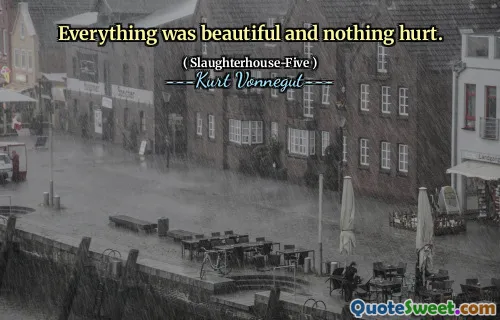"Slaughterhouse-Five," authored by Kurt Vonnegut, follows the peculiar life journey of Billy Pilgrim, a soldier who becomes 'unstuck in time.' The narrative weaves together different moments from Billy's life, including his experiences during World War II, particularly the bombings of Dresden, and his post-war life, wherein he becomes an optometrist and has a tumultuous marriage. The nonlinear storytelling emphasizes the impact of trauma and the absurdity of war.
The book also introduces the Tralfamadorians, aliens who perceive all moments of time simultaneously. Their philosophy challenges the conventional understanding of free will, presenting a fatalistic viewpoint on life and death. This alien perspective serves as a lens to examine the chaos and suffering inherent in human existence and the effects of war on the psyche.
Through dark humor and a blend of science fiction and autobiography, Vonnegut critiques the destructiveness of war, expressing a deep sense of loss and disillusionment. "Slaughterhouse-Five" stands as a poignant reflection on the futility of violence and the inevitability of death, making it a significant work in American literature that resonates with readers on multiple levels.
More »
Today Birthdays
1887 -
Robinson Jeffers
1864 -
George Washington Carver
1936 -
Stephen Ambrose
1953 -
Pat Benatar
1949 -
George Foreman
1945 -
Rod Stewart
1936 -
Robert Woodrow Wilson
1938 -
Donald Knuth
1974 -
Hrithik Roshan
1956 -
Antonio Munoz Molina
1980 -
Sarah Shahi
1936 -
Al Goldstein
1939 -
David Horowitz
1955 -
Michael Schenker
1986 -
Abbey Clancy
1959 -
Chris Van Hollen
1989 -
Emily Meade
